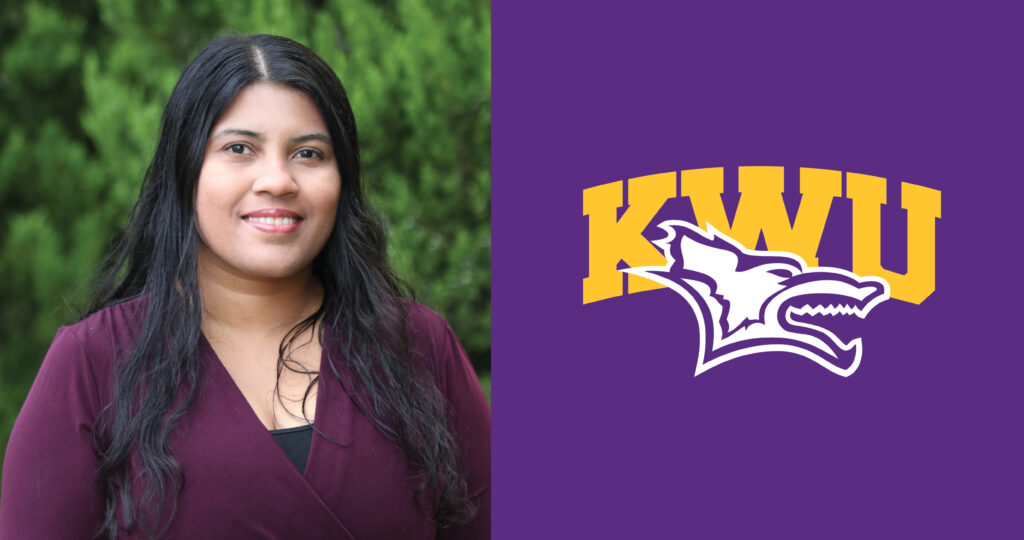Growing up, Dr. Sureni Wickramasooriya, math instructor at Kansas Wesleyan, was drawn to numbers. She was always the quickest to solve a math problem, and her teachers recognized and identified her ability.
Born and educated in Sri Lanka, she was selected to study math, along with statistics and computer science during her high school years.
“The education system is a little bit different. We had to take comprehensive exams and, according to the score, they would select a percentage, say 10 percent, for math, for statistics and for computer science,” Wickramasooriya explained. “I was the top score in math. For computer science I didn’t have much interest.”
Beside learning as much as she could about mathematics, her ambition was to be able to share her knowledge with future mathematicians.
“It was one of my ambitions, to be a professor,” Wickramasooriya said. “In my childhood, I wanted to be a teacher. It’s my passion.”
After earning her bachelor’s degree and working for universities in Sri Lanka as an assistant professor, she made the decision to move to the United States to further her education, settling on Clarkson University in Potsdam, N.Y.
For Wickramasooriya, the draw to the United States was simple: The U.S. afforded a very good education, especially for STEM fields, and allowed for coursework instead of just focusing on research.
“I finished my master’s, which is a part of my Ph.D. program, and then I started the research part,” she said.
Her focus narrowed to pest management and population dynamics, due in large part to the guidance of her advisor at Clarkson, Dr. Rana Parshad.
“I studied predator-prey relationship and how do we use it to eradicate pests from the agricultural field without using chemicals,” Wickramasooriya said.
With Parshad, Wickramasooriya has published papers and articles relating to mathematical modeling in relation to infectious diseases, along with her pest management and population dynamics work.
“The other project is new,” Wickramasooriya said of her infectious disease work. “It’s an agent-based model, a mathematical model that people use to analyze ecological systems.”
All in all, it took her 6½ years to complete her Ph.D. in Applied Mathematics, which she earned after her appointment to the KWU staff for the Fall 2021 semester.
Managing her studies along with her teaching duties and raising her now-4-year-old daughter, Oneli, while her husband lives and works in California has been a challenge, she said.
Now at KWU for two years, Wickramasooriya has turned her focus toward teaching introductory and secondary math such as algebra, calculus and linear algebra, but she hopes to expand her teaching into her research area, as well.
“The research was the hardest part for me,” Wickramasooriya said. “Still, I’d like to continue with it.”
Story by Dan Froehlich


